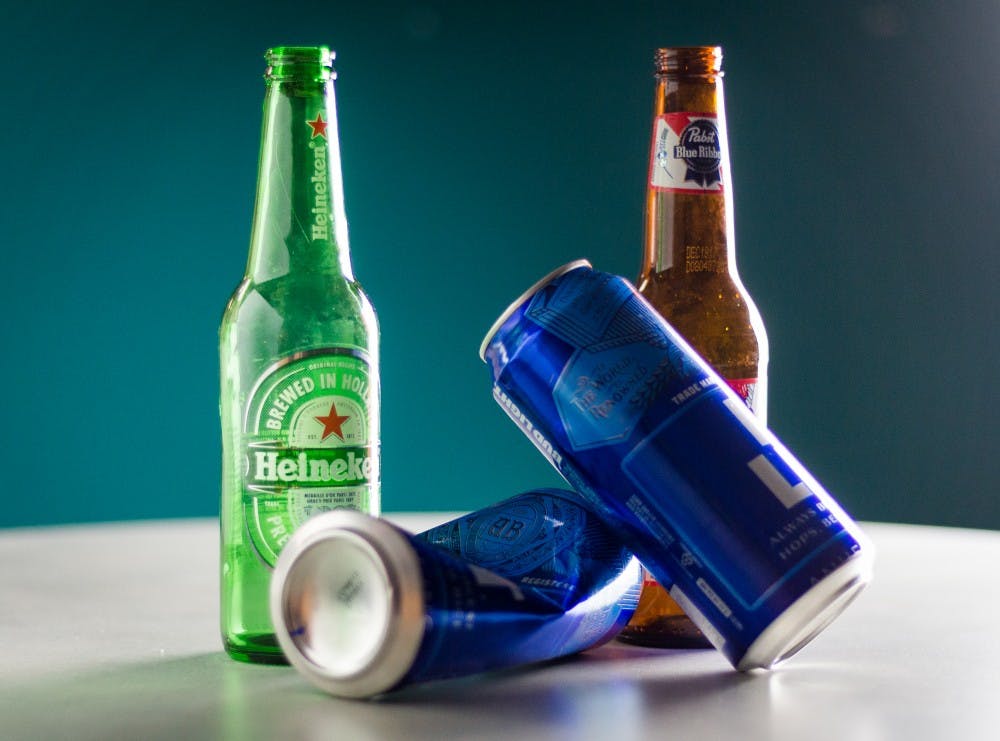New Michigan laws turn minor in possession first offense from misdemeanor to civil infraction
A new law that went into effect Jan. 1 will reclassify a first-offense minor in possession of alcohol charge from a misdemeanor to a civil infraction.
Bills 332-333 were signed into law by Gov. Rick Snyder in December 2016. State Rep. Roger Hauck, R-Union Township, agrees with the change. He said sometimes a young person makes a mistake and this change in the law helps people keep a misdemeanor off their records if they learn from their brushes with the law.
"I think if you show regret, (a charge) should go away," Hauck said.
The bills received bipartisan support. State Sen. Rick Jones, R-Grand Ledge, a former law enforcement officer, sponsored the bills to address issues he saw in the application of the MIP law.
“The problem with the old Minor in Possession law was that it was clogging up our courts, putting kids in jail and jeopardizing the chances of some young people to get into college or get a job,” Jones said in a press release. “Under this new law, we will give young people one chance to get their lives in order and avoid a criminal record.”
A first-offense MIP civil infraction citation will now only carry a $100 fine and any court costs. A second offense will result in a misdemeanor charge, a fine of up to $200 and includes substance abuse treatment, community service and a possible deferral. That could also include 30 days in jail if probation is violated, if substance abuse treatment is not completed or if the fine is not paid.
For a third offense, the same parameters apply but offenders could face a $500 fine and includes a possible 60 days in jail for violating probationary terms.
Mount Pleasant Police Officer Jeff Browne said city police have seen MIP offenses drop to 142 in 2016 as compared to 333 in 2013.
“Steadily we’ve seen a decline in our MIP complaints,” Browne said. “I don’t know how this is going to necessarily affect us.”
Browne attributed the MIP decline to the department offering a diversion program. With the law changing first offenses to a civil infraction, Browne said that program would no longer be offered to offenders. On Jan. 8, the Mount Pleasant City Commission voted to amend an ordinance that would comply with state laws.
At Central Michigan University, Lt. Cameron Wassman said minor in possession is a “very common occurrence” on campus. At CMU, there were 172 liquor law arrests in 2016, 101 in 2015 and 174 in 2014. While the law does not allow police to make a physical arrest for minor in possession, Wassman said one can still be arrested for disorderly conduct. They are also required to still pay a fine.
“It’s not something that would be on your criminal history,” he said.
The lieutenant said those are receive a civil infraction for minor in possession should pay that $100 quickly. Like a traffic ticket, if the fine is not paid then the offender will run the risk of police obtaining a warrant for their arrest.
Wassman said it is still illegal for people younger than 21 to drink. However, he said some people make some “bad choices” and the law serves as a “second chance.”
“This kind of helps them out a little bit,” he said.
Another change to the state law allows minors to deny preliminary breath tests to determine the percentage of their blood alcohol level. Police can ask the minor to consent to a breath test, but if the minor says no then it cannot be administered without a court order.





